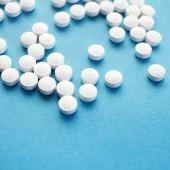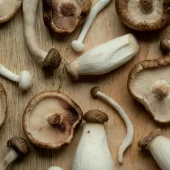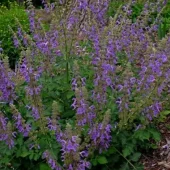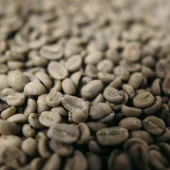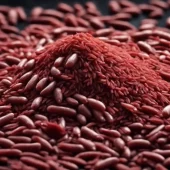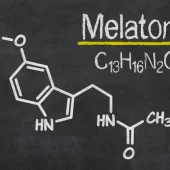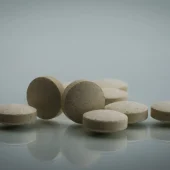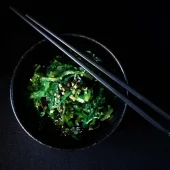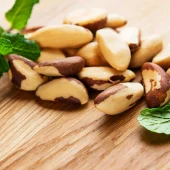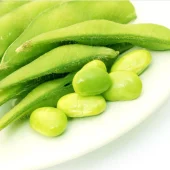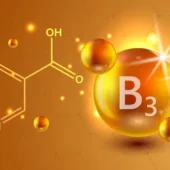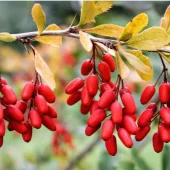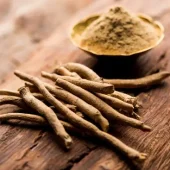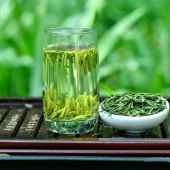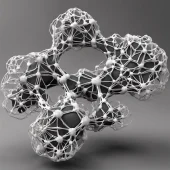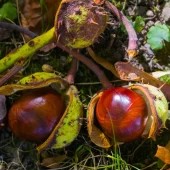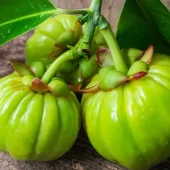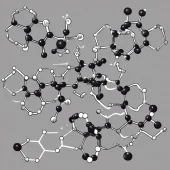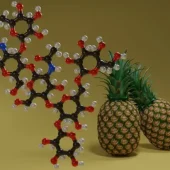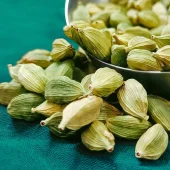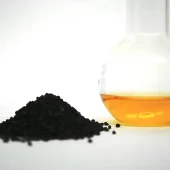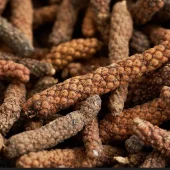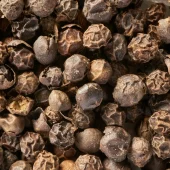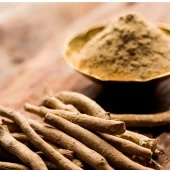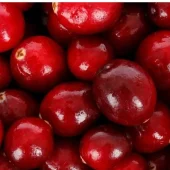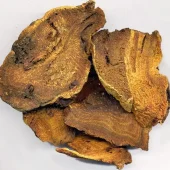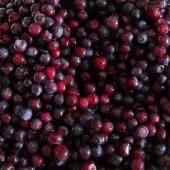Use the HELP and CATEGORIES icons for guidance on how to use the index
Try out the index filters for targeting your plan to your needs
Use a PC or tablet for the full filterable INDEX. Press the image to view the whole LIBRARY entry
Click the image to view the library entry
ANTIHISTAMINES
While we propose desloratadine and loratadine as novel anti-cancer drugs, they are not novel drugs, and are routinely given to cancer patients and others ..with few or no adverse effects.
- Case records in many cancer types show lower progression risks
- H1 classed Desloratadine and loratadine have the broadest evidence
- Higher immunotherapy responses including melanoma and lung cancer
ASPIRIN
Meta-analyses of 118 observational studies of mortality in cancer patients give evidence consistent with reductions of about 20% in mortality associated with aspirin use
- Substantial risk reductions often reported from large scale analysis of case records
- Good evidence that aspirin can reduce metastasis, recurrence and all cause risk
- Increasing reports that aspirin improves response rates to immunotherapies
ASTRAGALUS
We found a large treatment effect of adding astragalus-based herbal treatment to standard chemotherapy regimens. There is a pressing need for validation of these findings…
- Studies of national patient prescription registers consistently report lowered progression risks
- Recent trials within oncology beyond asia in advanced lung cancers are very compelling
- Many actions in reduced side effects, from chemotherapy to improved immune system recover...
BETA GLUCANS
With more than 80 clinical trials evaluating their biological effects, the question is not if glucans will move from food supplement to widely accepted drug, but how soon.
- Balances and energize the immune system, reduces resistance to treatment
- Protective, reducing overall risk by limiting risks and side effects of drugs
- Multiple commercial products in clinical trial phase, many high quality supplements
DANSHEN
After 10 years, survival rate analysis demonstrated a strong association between the use of danshen and survival
- Analysis across multiple trials find reduced progression risks with chemotherapy
- Evidence includes breast, prostate, lung, colorectal and bladder cancers
- Reduce both side effects and all cause risk, including cardiovascular health
GREEN COFFEE EXTRACT
Among patients with advanced or metastatic colorectal cancer, this study found increased coffee intake to be associated with lower risk of disease progression
- Coffee shown to reduce progression risk in multiple studies of patient records
- Positive findings include colorectal, liver, gliomas (brain), prostate and most breast cancers
- Green coffee extracts can deliver substantial doses of active compounds beyond caffeine
RED YEAST RICE
Among women with stage I-III TNBC incident statin use in the 12 months following breast cancer diagnosis was associated with an OS and BCSS benefit. Statins may have a role in select patients with breast cancer
- Increasing evidence for benefits of statins during and after treatment across many cancer types
- Frequently, effects are significant in “responders” where LDL is lowered on their introduction
- Where a prescription statin is unavailable, red yeast rice is a natura...
TURKEYTAIL MUSHROOM
..we clearly showed an overall survival benefit (6.49 vs 3.59 years) in all patients with gastric cancer using PSK [turkey tail extract] in combination with chemotherapy
- Much lower progression for sub groups in gastric, lung, breast and colorectal cancers
- Patient immune system balancing and activation actions are shown in clinical results
- Mushrooms and mushroom extracts can boost microbiome function and more
VITAMIN D3
Our findings suggest that there is a highly significant linear dose-response relationship between circulating 25-OH-D levels and overall survival in patients with breast cancer.
- Large scale evidence in many cancers linking vitamin D3 levels to improved outcomes
- Strongest effects in older male patients, especially colorectal and prostate cancers
- Brand new research show significantly improved outcomes in immunotherapy with higher D3
LACTOFERRIN
We also observed a substantial decrease in the growth rate of target lesions before and after start of rhLF [lactoferrin]
- Strong natural iron metabolism is a crucial success factor in targeted therapy
- The vast majority of patients are deficient during treatment unless addressed
- Direct in slowing progress of lung and renal cancers in some patients reported
MELATONIN
..MLT may benefit cancer patients who are also receiving chemotherapy, radiotherapy, supportive therapy, or palliative therapy by improving survival and ameliorating the side effects
- Trials frequently report sustantially lowered progression at moderate/ high doses
- Recent study in advanced lung cancer also shows reduced progression risks
- Meta-analysis reports consistently reduced side effects particularly in advanced stages
CITRUS PECTIN
… durable benefit after 12 more months of therapy in this cohort, with 85% of patients having a durable long-term response, 62% a decreased/stable PSA
- Effective results seen slowing prostate cancer progress usually PectaSol brand
- Small but fascinating trial outcomes in other cancers often late stage relapsed cases
- Heavy metal chelator able to reduce crucial metals such as lead, mercury and copper
SODIUM
Remarkably, serum sodium levels outperform the predictive power of PD-L1 status, the only widely used biomarker for immunotherapy response in the field of uro-oncology
- Higher salt levels radically improve immunotherapy results
- Almost all responders had higher sodium, while treatment depletes levels for most patients
- Strong benefit in advanced kidney, bladder cancer and most solid tumors
ZINC
Our study provides preliminary evidence that there is a correlation between serum zinc levels and the efficacy of immunotherapy
- New research links higher zinc levels to doubled immunotherapy response
- Higher pre-diagnosis levels reduce progression risks in many cancers
- Suggestions that supplements be combined with copper reduction
FERMENTED WHEATGERM
Continuous supplementation of anticancer therapies with MSC for more than 6 months is beneficial to patients with colorectal cancer in terms of overall and progression-free survival.
- Small Phase II trials with good results in colorectal cancer and melanoma
- Evidence so far only from branded products, requiring further validation
- Lab studies show immunomodulatory actions.
INOSINE
Compared with the non-inosine group, the median PFS and ORR of the inosine group were significantly prolonged and improved in the multiple exploratory subgroup analyses.
- Recent clinical study reports improved immunotherapy responses
- Lung cancer outcomes in particular are improved with inosine supplementation
- Immunotherapy outcomes in kidney cancer also improved with higher inosine
IODINE
Our data indicate that supplementation with I2 improves the effectiveness of the treatment, decreasing side effects and increasing disease-free survival specially in advanced conditions
- Molecular I2 form substantially reduces post surgery progression rates and improves side effects
- In high risk groups, adding I2 to pre-emptive surgery give similar benefits
- Readily available supplement in solution form, and start...
LUTEOLIN
..daily treatment with 50 mg of an oral supplement of luteolin is safe and effective with regard to oncological outcomes, particularly in (prostate cancer) patients under AS [active surveillance]
- Recent evidence for slowing progression in early stage prostate cancer at 50mg dose levels
- Indirect evidence for reducing rates of metastatic activity in digestive tract cancers
- Anti-inflammatory actions may be increased combined with other compounds
SELENIUM
SLM [L-selenomethionine] (4000 μg) in sequential combination with axitinib is well tolerated with encouraging efficacy [kidney cancer].
- Higher levels before and during treatment reported as slowing progression rates
- Also evidence that oncology therapy results themselves benefit from selenium
- Post-diagnostic higher dose supplementation strategies emerging in relapsed kidney cancer
SOY ISOFLAVONES
Soy isoflavones were associated with a 26% reduced risk of recurrence, particularly among postmenopausal and estrogen receptor–positive survivors, with the greatest risk reduction at 60 mg/day
- Compelling evidence from recent multi-national meta-analysis of breast cancer outcomes and diet
- Particularly good statistical data for stage III-IV groups, ER+ and ER- types
- Active ingredient equol shown slowing pre-cancer phase in prostate disease.
VITAMIN B3
The results of these phase II studies suggest nicotinamide is effective in reducing AKs [actinica keratosis] and shows promise for skin cancer chemoprevention
- Evidence of reducing immune evasion in digestive system cancers and glioblastoma
- Reduces progression risks in female non smoker lung cancer treatment
- Improves outcomes in non melanoma skin cancers & keratosis supporting oncology
AKKERMANSIA
Akkermansia muciniphila predicts vigorous response to immunotherapy in non-small-cell lung cancer
- A natural level increases treatment responses especially immunotherapy
- Often linked to lower progression rates, especially when part of highly diverse microbiota
- Dietary sources including functional foods are the best way to sustain over time
BERBERINE
..has abundantly shown its ability to modulate these pathways without limiting side-effects, could be a safe and valid alternative to conventional drugs in breast cancer prevention
- Incidence and progression of many cancers is reported with insulin resistance
- Has strong evidence in insulin resistance and fasting blood glucose levels
- Also contributes to improved cholesterol, anti-inflammatory effects, microbiome health
CURCUMIN
..the combination of curcumin with FOLFOX chemotherapy represents a safe and tolerable treatment with potential to provide patient benefit
- Suppresses crucial inflammation and hormonal drives of cancer, its main clear use
- Clinical evidence is limited to pilot trials so far, larger trials are needed
- A high absorption formula may increase its effects, also combinations
EGCG
EGCG, has proven benefits in the treatment of reproductive cancers, including ovarian, cervical, endometrial, vaginal, and vulvar cancers
- Some studies find reduced progression in breast and prostate cancer
- Recent meta-analysis shows clear preventative effect for breast cancer
- Also for reducing pain and side effects of radiotherapy (esophageal)
NATTOKINASE
Combined supplementation showed an advantage in anti-coagulation activities from increased antithrombin concentration, and down-regulating COX-1 related vasoconstriction
- Reduces clotting, platelet aggregation and adhesion
- Strong synergies with red yeast rice (or statin)
- Separate actions complementary to aspirin use
ALPHA KETOGLUTARATE
When combined with anti-PD-L1 drugs (α-PD-L1), they significantly inhibited tumor growth without causing obvious side effects during treatment
- Relatively higher patient AKG levels mean doubled immunotherapy responses
- Compelling pre-clinical data reports AKG is essential to immune system activation
- Researched in anti-aging for its ability to improve mitochrondial health, widely available
LIPOIC ACID
These very primary results suggest the lack of toxicity and the probable efficacy of metabolic treatment in chemoresistant advanced carcinoma
- Pilot clincial trials and case study evidence from integrative care
- Used with garcini cambogia / hydroxycitrate for metabolic therapy
- Evidence of standalone anti-inflammatory and metabolic benefits
QUERCETIN
Our findings provide support for the likelihood that the beneficial effects of intermittent [TKI] + Quercetin on cellular senescence
- Successful use with tyrosine kinase inhibitors in non cancer lung disease
- Evidence of significant anti-inflammatory effects relevant to cancer
- Some clinical evidence for reductions in insulin and glucose levels
UROLITHIN A
Levels of plasma acylcarnitines and C-reactive proteins are significantly lower with Urolithin A indicating higher mitochondrial efficiency and reduced inflammation
- Emerging evidence in regulating mitochondrial dysfuntion
- Suppressing acylcarnitines, elevated in many cancers
- First phase II trials include prostate cancer
GYMNEMA SYLVESTRE
G. sylvestre administration in patients with IGT decreased 2-h OGTT and A1C, increasing insulin sensitivity. There were also improvements in anthropometric measures and the lipid profile.
- Clinical evidence is mainly as a natural anti-diabetic
- Good evidence on glucose and lipid management
- Lacking direct evidence in cancer to date
MILK THISTLE
This translates into a 2.6 fold increase in the PSA doubling time from 445 to 1150 days for the supplement and placebo periods
- Limited clinical evidence in direct anti-cancer actions
- Has shown benefits in managing some treatment side-effects
- Helps reduce insulin resistance and inflammation
SULFORAPHANE
broccoli soup affected gene expression in the prostate of men on active surveillance, consistent with a reduction in the risk of cancer progression
- Evidence of significant anti-inflammatory action
- Increases metabolic health markers for insulin and LDL
- Generally shown to have protective, risk reduction effects for several cancers
BAICALEIN
our study hereby supports the clinical efficacy of baicalin in reducing blood lipids and inflammation in patients
- Limited clinical trials do show use as an anti-inflammatory agent
- Branded products in arthritis and vascular disease emerging
- In chinese herbal medicine the effects are in combinations
BOSWELLIA
Boswellia serrata inhibited breast cancer proliferation and was well-tolerated in a Phase Ia window of opportunity trial
- Recent clinical trial as an adjuvant to surgery in breast cancer showed promising effect
- A few studies show anti-inflammatory actions in managing arthritis
- Remaining studies are mostly pre-clinical/ lab studies only
BROMELAIN
IMM-101 treatment alongside an anti-inflammatory agent, such as bromelain… is a regimen that should be considered for treating patients with prostate cancer
- Emerging commercial treatments for skin cancer (BCC)
- Used to help new types of immunotherapy in development
- Has been used in helping manage oncology side effects
CARDAMOM
The results showed that cardamom significantly reduced the levels of inflammatory factors, including hs‐CRP [high-sensitivity c-reactive protein]
- Reasonable evidence of relevant anti-inflammatory actions relevant to cancers
- Moderates dehydroepiandrosterone, associated with breast cancer
- Can decrease androstenedione linked with prostate cancer progression
CITRUS BERGAMOT
..extremely effective in supporting healthy blood lipid levels through the optimization of total cholesterol, LDL cholesterol, HDL cholesterol
- Citrus bergamot shows its main actions in controlling cholesterol
- Often combined with other extracts or with statins in trials
- Does show relevant anti-inflammatory actions but more data needed
ELLAGIC ACID
..after 12 weeks of enhanced insulin sensitivity decreased insulin secretion and improved..blood pressure, fasting glucose, and triglycerides
- In systemic inflammatory diseases shown to improve metabolic health
- Insulin resistance, inflammation and other markers associated with cancer
- One key compound in functional foods that improve microbiome
NIGELLA SATIVA
potential to improve different clinical outcomes, such as blood glucose, inflammatory markers, oxidative stress factors, serum lipids
- Mixed results in effects on key biomarkers most related to cancer
- Large variations in clinical evidence and quality of research
- So far no direct clinical evidence in cancer prevention or progression
PIPERLONGUMINE
“PL is selectively toxic to cancer cells with high drug-likeness and permeability, it may be a promising anti-cancer agent “
- Moderately good evidence in blood sugar and cholesterol health
- Mixed results in effects on key biomarkers most related to cancer
- So far no direct clinical evidence in cancer prevention or progression
PIPERINE
known to enhance the bioavailability of a number of therapeutic agents including natural products
- Clinical studies – with curcumin – show improvements in glucose, cholesterols and inflammation
- With vitamin D and curcumin, piperine helps regulate inflammatory markers in auto-immune disease
- In metabolic and liver health, piperine shows evidence of benefit in ...
APIGENIN
Apigenin may be of particular relevance to gastrointestinal disorders including colorectal cancer
- Currently a lack of clinical evidence to show effects related to cancer
- Potent natural compound present in many foods, parsley in particular
- Most probable benefits in digestive system due to low absorption
ASHWAGANDHA
Withania somnifera has potential against cancer-related fatigue, in addition to improving the quality of life.
- There is a lack of any meaningful clinical trial evidence
- Metabolic and anti-inflammatory results are also sparse
- Small trials show health effects in stress and anxiety managemen
BUTTERBUR
“These findings indicate the promising potential of PT [Butterbur] as a potent ETCC1 [mitcochontrial – complex] inhibitor to target the metabolic vulnerability of tumor cells.”
- Butterbur and its active ingredient petasin are used in migraine management based on clinical evidence
- Interesting ability to cross blood brain barrier and overall penetration, anti-inflammatory actions in allergies
- Limited studies include recent evidence on re-regulatin...
D-MANNOSE
“We consider that the administration of mannose could be a simple, safe and selective therapy in the treatment of cancer, and could be applicable to multiple tumour types..”
- D-Mannose is an anti-bactieral, anti-inflammatory ingredient in foods such as cranberrry
- Pre-clinical evidence shows a credible mechanism to increase effects of chemotherapy
- Evidence from clinical trials is needed to show its anti-cancer effects carry over.
EMODIN
“emodin, a potent inhibitor of EMT [key step in metastasis], could serve as a potential candidate for ovarian cancer therapy.”
- Also known as chinese rhubarb, interchangeable with Aloe Emodin
- Pre-clinical research shows metabolic effect in glucose and lipid control
- Promising lab studies in several cancer types and against metastasis
SOURSOP
Experts warn against using soursop to treat cancer. While limited, lab-based research suggests this fruit may help fight cancer, it hasn’t been studied in humans
- No clinical evidence or trials of any kind to support its use for cancer
- Only test tube or mouse model evidence against cancer cells
- More evidence in human patients, in any disease, is needed
Highest rating for having multiple clinical trials reporting positive results and/or meta-analysis including from large scale patient records
Ratings of 4 or 4.5 stars for more limited numbers of research reports and/or findings from analysis of patient outcomes
Lower ratings of 3.5 for direct evidence restricted to 1-2 trials or high quality case studies
With strong indirect evidence of ability to improve bio-markers known to increase cancer progression and spread e.g vascular health
For more limited levels of proof driving indirect effects seen in improved bio-markers of e.g vascular health
The direct evidence in cancer research is limited to pre-clinical studies. Some of these can be compelling in nature
RATINGS are open to all. By submitting new evidence to the site not only the rating can be changed but also its place on the PATHFINDER and guides.
Please help us grow the site
Many studies are during chemotherapy. Its open to consideration if there would be benefits with other oncology regimes. Often, the same reports show lower side effects which in some cases is supporting the reduced progression reported
A lot of evidence comes from patient case data for use of prescriptions or biomarker tests. For instance nutrient deficiencies due cancer activity and inflammation, are common and need greater than the “RDA” dose to drive higher natural levels.
There are synergies with natural compounds, so high natural levels in one nutrient, say iron or zinc, often helps others to come into balance. And, they often have multiple actions related to improved oncology results
Beyond direct clinical evidence, you will find strong indirect evidence. This means an ability to improve crucial bio-markers known to increase cancer progression and spread e.g vascular health.
Most clinical studies are in the common cancer types, such breast , prostate, colorectal and lung cancer. Sometimes, studies just haven’t been extended to the many other less common types for that supplement. Use some judgement where you can
TBD—-
- Cisplatin, Carboplatin
- Paclitaxel (Taxol)
- Docetaxel (Taxotere)
- Gemcitabine (Gemzar)
- Vinorelbine (Navelbine)
- Etoposide (VP-16)
- Pemetrexed (Alimta)
Chemotherapy is commonly used in about a quarter of oncology programs often combined with surgery and other drugs for instance targeted to specific growth pathways
There are a multitude of so called targeted therapies. These include so called androgen, tyrosine kinase, angiogenisys, CD4/6 and many more “inhibitors”. And certain monoclonal antibodies.
- Cisplatin, Carboplatin
- Paclitaxel (Taxol)
- Docetaxel (Taxotere)
- Gemcitabine (Gemzar)
- Vinorelbine (Navelbine)
- Etoposide (VP-16)
- Pemetrexed (Alimta)
Immunotherapies work to energize and activate your own immune system and disarm cancer tumor evasion, and can be used in dual combinations.
- Cisplatin, Carboplatin
- Paclitaxel (Taxol)
- Docetaxel (Taxotere)
- Gemcitabine (Gemzar)
- Vinorelbine (Navelbine)
- Etoposide (VP-16)
- Pemetrexed (Alimta)
Currently the evidence for anti-metastatic actions is indirect. Where a clinical trial in other, often inflammatory disease, shows actions reducing systemic, immune or vascular inflammation for instance.
- Cisplatin, Carboplatin
- Paclitaxel (Taxol)
- Docetaxel (Taxotere)
- Gemcitabine (Gemzar)
- Vinorelbine (Navelbine)
- Etoposide (VP-16)
- Pemetrexed (Alimta)
Some entries have both reported risk reductions and lowered side effects, some reduce non cancer risks. Others are here for their potential to increase quality of life.
- Cisplatin, Carboplatin
- Paclitaxel (Taxol)
- Docetaxel (Taxotere)
- Gemcitabine (Gemzar)
- Vinorelbine (Navelbine)
- Etoposide (VP-16)
- Pemetrexed (Alimta)
A diverse… gut microbiota
- Cisplatin, Carboplatin
- Paclitaxel (Taxol)
- Docetaxel (Taxotere)
- Gemcitabine (Gemzar)
- Vinorelbine (Navelbine)
- Etoposide (VP-16)
- Pemetrexed (Alimta)
ANTIHISTAMINES
While we propose desloratadine and loratadine as novel anti-cancer drugs, they are not novel drugs, and are routinely given to cancer patients and others ..with few or no adverse effects.
- Case records in many cancer types show lower progression risks
- H1 classed Desloratadine and loratadine have the broadest evidence
- Higher immunotherapy responses including melanoma and lung cancer
ASPIRIN
Meta-analyses of 118 observational studies of mortality in cancer patients give evidence consistent with reductions of about 20% in mortality associated with aspirin use
- Substantial risk reductions often reported from large scale analysis of case records
- Good evidence that aspirin can reduce metastasis, recurrence and all cause risk
- Increasing reports that aspirin improves response rates to immunotherapies
ASTRAGALUS
We found a large treatment effect of adding astragalus-based herbal treatment to standard chemotherapy regimens. There is a pressing need for validation of these findings…
- Studies of national patient prescription registers consistently report lowered progression risks
- Recent trials within oncology beyond asia in advanced lung cancers are very compelling
- Many actions in reduced side effects, from chemotherapy to improved immune system recover...
BETA GLUCANS
With more than 80 clinical trials evaluating their biological effects, the question is not if glucans will move from food supplement to widely accepted drug, but how soon.
- Balances and energize the immune system, reduces resistance to treatment
- Protective, reducing overall risk by limiting risks and side effects of drugs
- Multiple commercial products in clinical trial phase, many high quality supplements
DANSHEN
After 10 years, survival rate analysis demonstrated a strong association between the use of danshen and survival
- Analysis across multiple trials find reduced progression risks with chemotherapy
- Evidence includes breast, prostate, lung, colorectal and bladder cancers
- Reduce both side effects and all cause risk, including cardiovascular health
GREEN COFFEE EXTRACT
Among patients with advanced or metastatic colorectal cancer, this study found increased coffee intake to be associated with lower risk of disease progression
- Coffee shown to reduce progression risk in multiple studies of patient records
- Positive findings include colorectal, liver, gliomas (brain), prostate and most breast cancers
- Green coffee extracts can deliver substantial doses of active compounds beyond caffeine
RED YEAST RICE
Among women with stage I-III TNBC incident statin use in the 12 months following breast cancer diagnosis was associated with an OS and BCSS benefit. Statins may have a role in select patients with breast cancer
- Increasing evidence for benefits of statins during and after treatment across many cancer types
- Frequently, effects are significant in “responders” where LDL is lowered on their introduction
- Where a prescription statin is unavailable, red yeast rice is a natura...
TURKEYTAIL MUSHROOM
..we clearly showed an overall survival benefit (6.49 vs 3.59 years) in all patients with gastric cancer using PSK [turkey tail extract] in combination with chemotherapy
- Much lower progression for sub groups in gastric, lung, breast and colorectal cancers
- Patient immune system balancing and activation actions are shown in clinical results
- Mushrooms and mushroom extracts can boost microbiome function and more
VITAMIN D3
Our findings suggest that there is a highly significant linear dose-response relationship between circulating 25-OH-D levels and overall survival in patients with breast cancer.
- Large scale evidence in many cancers linking vitamin D3 levels to improved outcomes
- Strongest effects in older male patients, especially colorectal and prostate cancers
- Brand new research show significantly improved outcomes in immunotherapy with higher D3
LACTOFERRIN
We also observed a substantial decrease in the growth rate of target lesions before and after start of rhLF [lactoferrin]
- Strong natural iron metabolism is a crucial success factor in targeted therapy
- The vast majority of patients are deficient during treatment unless addressed
- Direct in slowing progress of lung and renal cancers in some patients reported
MELATONIN
..MLT may benefit cancer patients who are also receiving chemotherapy, radiotherapy, supportive therapy, or palliative therapy by improving survival and ameliorating the side effects
- Trials frequently report sustantially lowered progression at moderate/ high doses
- Recent study in advanced lung cancer also shows reduced progression risks
- Meta-analysis reports consistently reduced side effects particularly in advanced stages
CITRUS PECTIN
… durable benefit after 12 more months of therapy in this cohort, with 85% of patients having a durable long-term response, 62% a decreased/stable PSA
- Effective results seen slowing prostate cancer progress usually PectaSol brand
- Small but fascinating trial outcomes in other cancers often late stage relapsed cases
- Heavy metal chelator able to reduce crucial metals such as lead, mercury and copper
SODIUM
Remarkably, serum sodium levels outperform the predictive power of PD-L1 status, the only widely used biomarker for immunotherapy response in the field of uro-oncology
- Higher salt levels radically improve immunotherapy results
- Almost all responders had higher sodium, while treatment depletes levels for most patients
- Strong benefit in advanced kidney, bladder cancer and most solid tumors
ZINC
Our study provides preliminary evidence that there is a correlation between serum zinc levels and the efficacy of immunotherapy
- New research links higher zinc levels to doubled immunotherapy response
- Higher pre-diagnosis levels reduce progression risks in many cancers
- Suggestions that supplements be combined with copper reduction
FERMENTED WHEATGERM
Continuous supplementation of anticancer therapies with MSC for more than 6 months is beneficial to patients with colorectal cancer in terms of overall and progression-free survival.
- Small Phase II trials with good results in colorectal cancer and melanoma
- Evidence so far only from branded products, requiring further validation
- Lab studies show immunomodulatory actions.
INOSINE
Compared with the non-inosine group, the median PFS and ORR of the inosine group were significantly prolonged and improved in the multiple exploratory subgroup analyses.
- Recent clinical study reports improved immunotherapy responses
- Lung cancer outcomes in particular are improved with inosine supplementation
- Immunotherapy outcomes in kidney cancer also improved with higher inosine
IODINE
Our data indicate that supplementation with I2 improves the effectiveness of the treatment, decreasing side effects and increasing disease-free survival specially in advanced conditions
- Molecular I2 form substantially reduces post surgery progression rates and improves side effects
- In high risk groups, adding I2 to pre-emptive surgery give similar benefits
- Readily available supplement in solution form, and start...
LUTEOLIN
..daily treatment with 50 mg of an oral supplement of luteolin is safe and effective with regard to oncological outcomes, particularly in (prostate cancer) patients under AS [active surveillance]
- Recent evidence for slowing progression in early stage prostate cancer at 50mg dose levels
- Indirect evidence for reducing rates of metastatic activity in digestive tract cancers
- Anti-inflammatory actions may be increased combined with other compounds
SELENIUM
SLM [L-selenomethionine] (4000 μg) in sequential combination with axitinib is well tolerated with encouraging efficacy [kidney cancer].
- Higher levels before and during treatment reported as slowing progression rates
- Also evidence that oncology therapy results themselves benefit from selenium
- Post-diagnostic higher dose supplementation strategies emerging in relapsed kidney cancer
SOY ISOFLAVONES
Soy isoflavones were associated with a 26% reduced risk of recurrence, particularly among postmenopausal and estrogen receptor–positive survivors, with the greatest risk reduction at 60 mg/day
- Compelling evidence from recent multi-national meta-analysis of breast cancer outcomes and diet
- Particularly good statistical data for stage III-IV groups, ER+ and ER- types
- Active ingredient equol shown slowing pre-cancer phase in prostate disease.
VITAMIN B3
The results of these phase II studies suggest nicotinamide is effective in reducing AKs [actinica keratosis] and shows promise for skin cancer chemoprevention
- Evidence of reducing immune evasion in digestive system cancers and glioblastoma
- Reduces progression risks in female non smoker lung cancer treatment
- Improves outcomes in non melanoma skin cancers & keratosis supporting oncology
AKKERMANSIA
Akkermansia muciniphila predicts vigorous response to immunotherapy in non-small-cell lung cancer
- A natural level increases treatment responses especially immunotherapy
- Often linked to lower progression rates, especially when part of highly diverse microbiota
- Dietary sources including functional foods are the best way to sustain over time
BERBERINE
..has abundantly shown its ability to modulate these pathways without limiting side-effects, could be a safe and valid alternative to conventional drugs in breast cancer prevention
- Incidence and progression of many cancers is reported with insulin resistance
- Has strong evidence in insulin resistance and fasting blood glucose levels
- Also contributes to improved cholesterol, anti-inflammatory effects, microbiome health
CURCUMIN
..the combination of curcumin with FOLFOX chemotherapy represents a safe and tolerable treatment with potential to provide patient benefit
- Suppresses crucial inflammation and hormonal drives of cancer, its main clear use
- Clinical evidence is limited to pilot trials so far, larger trials are needed
- A high absorption formula may increase its effects, also combinations
EGCG
EGCG, has proven benefits in the treatment of reproductive cancers, including ovarian, cervical, endometrial, vaginal, and vulvar cancers
- Some studies find reduced progression in breast and prostate cancer
- Recent meta-analysis shows clear preventative effect for breast cancer
- Also for reducing pain and side effects of radiotherapy (esophageal)
NATTOKINASE
Combined supplementation showed an advantage in anti-coagulation activities from increased antithrombin concentration, and down-regulating COX-1 related vasoconstriction
- Reduces clotting, platelet aggregation and adhesion
- Strong synergies with red yeast rice (or statin)
- Separate actions complementary to aspirin use
ALPHA KETOGLUTARATE
When combined with anti-PD-L1 drugs (α-PD-L1), they significantly inhibited tumor growth without causing obvious side effects during treatment
- Relatively higher patient AKG levels mean doubled immunotherapy responses
- Compelling pre-clinical data reports AKG is essential to immune system activation
- Researched in anti-aging for its ability to improve mitochrondial health, widely available
LIPOIC ACID
These very primary results suggest the lack of toxicity and the probable efficacy of metabolic treatment in chemoresistant advanced carcinoma
- Pilot clincial trials and case study evidence from integrative care
- Used with garcini cambogia / hydroxycitrate for metabolic therapy
- Evidence of standalone anti-inflammatory and metabolic benefits
QUERCETIN
Our findings provide support for the likelihood that the beneficial effects of intermittent [TKI] + Quercetin on cellular senescence
- Successful use with tyrosine kinase inhibitors in non cancer lung disease
- Evidence of significant anti-inflammatory effects relevant to cancer
- Some clinical evidence for reductions in insulin and glucose levels
UROLITHIN A
Levels of plasma acylcarnitines and C-reactive proteins are significantly lower with Urolithin A indicating higher mitochondrial efficiency and reduced inflammation
- Emerging evidence in regulating mitochondrial dysfuntion
- Suppressing acylcarnitines, elevated in many cancers
- First phase II trials include prostate cancer
GYMNEMA SYLVESTRE
G. sylvestre administration in patients with IGT decreased 2-h OGTT and A1C, increasing insulin sensitivity. There were also improvements in anthropometric measures and the lipid profile.
- Clinical evidence is mainly as a natural anti-diabetic
- Good evidence on glucose and lipid management
- Lacking direct evidence in cancer to date
MILK THISTLE
This translates into a 2.6 fold increase in the PSA doubling time from 445 to 1150 days for the supplement and placebo periods
- Limited clinical evidence in direct anti-cancer actions
- Has shown benefits in managing some treatment side-effects
- Helps reduce insulin resistance and inflammation
SULFORAPHANE
broccoli soup affected gene expression in the prostate of men on active surveillance, consistent with a reduction in the risk of cancer progression
- Evidence of significant anti-inflammatory action
- Increases metabolic health markers for insulin and LDL
- Generally shown to have protective, risk reduction effects for several cancers
BAICALEIN
our study hereby supports the clinical efficacy of baicalin in reducing blood lipids and inflammation in patients
- Limited clinical trials do show use as an anti-inflammatory agent
- Branded products in arthritis and vascular disease emerging
- In chinese herbal medicine the effects are in combinations
BOSWELLIA
Boswellia serrata inhibited breast cancer proliferation and was well-tolerated in a Phase Ia window of opportunity trial
- Recent clinical trial as an adjuvant to surgery in breast cancer showed promising effect
- A few studies show anti-inflammatory actions in managing arthritis
- Remaining studies are mostly pre-clinical/ lab studies only
BROMELAIN
IMM-101 treatment alongside an anti-inflammatory agent, such as bromelain… is a regimen that should be considered for treating patients with prostate cancer
- Emerging commercial treatments for skin cancer (BCC)
- Used to help new types of immunotherapy in development
- Has been used in helping manage oncology side effects
CARDAMOM
The results showed that cardamom significantly reduced the levels of inflammatory factors, including hs‐CRP [high-sensitivity c-reactive protein]
- Reasonable evidence of relevant anti-inflammatory actions relevant to cancers
- Moderates dehydroepiandrosterone, associated with breast cancer
- Can decrease androstenedione linked with prostate cancer progression
CITRUS BERGAMOT
..extremely effective in supporting healthy blood lipid levels through the optimization of total cholesterol, LDL cholesterol, HDL cholesterol
- Citrus bergamot shows its main actions in controlling cholesterol
- Often combined with other extracts or with statins in trials
- Does show relevant anti-inflammatory actions but more data needed
ELLAGIC ACID
..after 12 weeks of enhanced insulin sensitivity decreased insulin secretion and improved..blood pressure, fasting glucose, and triglycerides
- In systemic inflammatory diseases shown to improve metabolic health
- Insulin resistance, inflammation and other markers associated with cancer
- One key compound in functional foods that improve microbiome
NIGELLA SATIVA
potential to improve different clinical outcomes, such as blood glucose, inflammatory markers, oxidative stress factors, serum lipids
- Mixed results in effects on key biomarkers most related to cancer
- Large variations in clinical evidence and quality of research
- So far no direct clinical evidence in cancer prevention or progression
PIPERLONGUMINE
“PL is selectively toxic to cancer cells with high drug-likeness and permeability, it may be a promising anti-cancer agent “
- Moderately good evidence in blood sugar and cholesterol health
- Mixed results in effects on key biomarkers most related to cancer
- So far no direct clinical evidence in cancer prevention or progression
PIPERINE
known to enhance the bioavailability of a number of therapeutic agents including natural products
- Clinical studies – with curcumin – show improvements in glucose, cholesterols and inflammation
- With vitamin D and curcumin, piperine helps regulate inflammatory markers in auto-immune disease
- In metabolic and liver health, piperine shows evidence of benefit in ...
APIGENIN
Apigenin may be of particular relevance to gastrointestinal disorders including colorectal cancer
- Currently a lack of clinical evidence to show effects related to cancer
- Potent natural compound present in many foods, parsley in particular
- Most probable benefits in digestive system due to low absorption
ASHWAGANDHA
Withania somnifera has potential against cancer-related fatigue, in addition to improving the quality of life.
- There is a lack of any meaningful clinical trial evidence
- Metabolic and anti-inflammatory results are also sparse
- Small trials show health effects in stress and anxiety managemen
BUTTERBUR
“These findings indicate the promising potential of PT [Butterbur] as a potent ETCC1 [mitcochontrial – complex] inhibitor to target the metabolic vulnerability of tumor cells.”
- Butterbur and its active ingredient petasin are used in migraine management based on clinical evidence
- Interesting ability to cross blood brain barrier and overall penetration, anti-inflammatory actions in allergies
- Limited studies include recent evidence on re-regulatin...
D-MANNOSE
“We consider that the administration of mannose could be a simple, safe and selective therapy in the treatment of cancer, and could be applicable to multiple tumour types..”
- D-Mannose is an anti-bactieral, anti-inflammatory ingredient in foods such as cranberrry
- Pre-clinical evidence shows a credible mechanism to increase effects of chemotherapy
- Evidence from clinical trials is needed to show its anti-cancer effects carry over.
EMODIN
“emodin, a potent inhibitor of EMT [key step in metastasis], could serve as a potential candidate for ovarian cancer therapy.”
- Also known as chinese rhubarb, interchangeable with Aloe Emodin
- Pre-clinical research shows metabolic effect in glucose and lipid control
- Promising lab studies in several cancer types and against metastasis
SOURSOP
Experts warn against using soursop to treat cancer. While limited, lab-based research suggests this fruit may help fight cancer, it hasn’t been studied in humans
- No clinical evidence or trials of any kind to support its use for cancer
- Only test tube or mouse model evidence against cancer cells
- More evidence in human patients, in any disease, is needed


